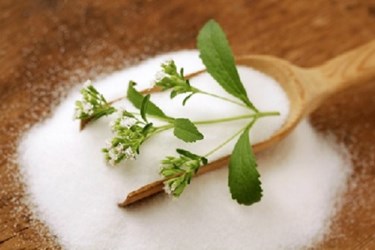Cargill's Stevia Project Could Lower Costs For Food And Beverage Manufacturers
By Karla Paris

R&D partnership leads to achievement of technical milestone in creation of compounds
Cargill and Evolva Holding announced the achievement of a technical milestone in their joint development program of fermentation-based minor steviol glycosides —the compounds responsible for the sweet taste in the stevia leaf. The milestone, announced on May 20, is an enabling step toward bringing additional stevia-based sweeteners to market in a cost-effective and sustainable way for food and beverage manufacturers.
In 2013, Cargill and Evolva entered into this agreement to jointly develop and commercialize fermentation-based minor steviol glycosides. Later that year, the companies announced that the program was moving into pilot-scale ahead of schedule. As a result of the achievement announced on May 20, Cargill will make a $1 million milestone payment to Evolva. Evolva is eligible for total milestone payments of up to $7.5 million during the R&D period.
Stevia has been great for food manufacturers, allowing manufacturers to deliver a clean label, is a sustainable sweetener, occurs naturally, and provides traceability important to today’s consumers. With Cargill’s support of Evolva's fermentation-based process, it very well could make farm production for developing stevia on an industrial scale somewhat obsolete, except for perhaps organic production. It’s important to emphasize that the name “stevia” represents a complex group of sweeteners — there are hundreds of varieties of the stevia rebaudiana bertoni plant that have evolved over time, and each variety has different distributions of steviol glycosides, the sweet component, within its leaves.
On May 14, Stevia Corporation announced the company harvested more than 2,000 tons of crops during the spring harvest of 2014, doubling the 2013 spring harvest. The majority of the spring harvest occurred during the Company's fourth quarter ending March 31, 2014 with the balance occurring during the current quarter ending June 30, 2014. Stevia is grown mostly on small farms in China and rural regions spread out around the globe. Even the largest stevia producers, like Cargill, Merisant, or PureCircle, have had to rely on a supply line that was considered at times unreliable and varied in quality and taste, not to mention that up to 70 percent of the cost of producing stevia comes from leaf production.
In developing its sweetener business, Cargill has embraced the opportunity to create a responsible, sustainable supply chain for a crop new to global commercial scale production. It could also significantly lower the price of Stevia while stabilizing production supply chains for companies such as Coca-Cola, Dr. Pepper Snapple, and others.
